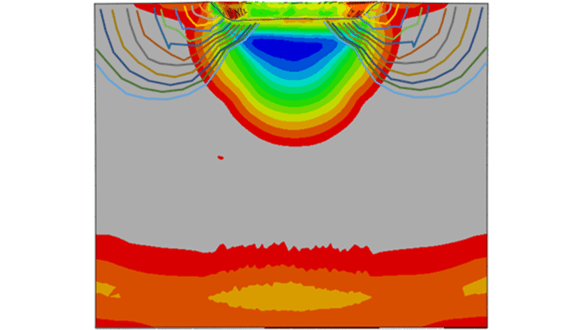Thu, 15 December, 2022
TWI took part in the FLECTION project alongside experts from the University of Cambridge and Italian company RTM Breda.
The project is part of the wider ‘Clean Sky’ European research programme, which aims to reduce CO2 emissions as well as lower the levels of noise produced by aircraft. Engines are an important aspect of this work to deliver greener technologies for flight, with the contra-rotating open rotor (CROR) engine concept being one of the most promising new technologies for the aerospace industry.
The FLECTION project was part of the overall framework for the development of the CROR engine blade, supporting the design with fatigue predictions that take into account the residual stresses around nicks, dents and scratches (NDS). A computational model was developed to study and predict the beneficial effect on fatigue life of the compressive residual stresses generated around NDS in Inconel 718, reducing the need of conservatism at the design stage.
A series of activities were undertaken for the damage generation and fatigue performance prediction. Dynamic indentations were performed through the split Hopkinson pressure bar to reproduce experimentally different damages. An extensive experimental campaign was performed to characterise the material, measure the properties of the damaged material, and provide data for the computational model validation. This included characterisation of the elasto-plastic, fracture and fatigue properties at room temperature and 550°C of the undamaged material, and four-point bend fatigue testing of the damaged material.
TWI developed the computational model for the prediction of the residual stresses generated during the impact and for the prediction of the fatigue life, taking into account the generated residual stresses. The model was calibrated and validated with the experimental data provided by the partners, providing a useful tool to support the design of turbine blades.
 Figure 1. Fatigue crack front propagation on the compressive residual stress contour plot
Figure 1. Fatigue crack front propagation on the compressive residual stress contour plot
The FLECTION project has received funding from the European Union's Horizon 2020 research and innovation programme under grant agreement No 865064